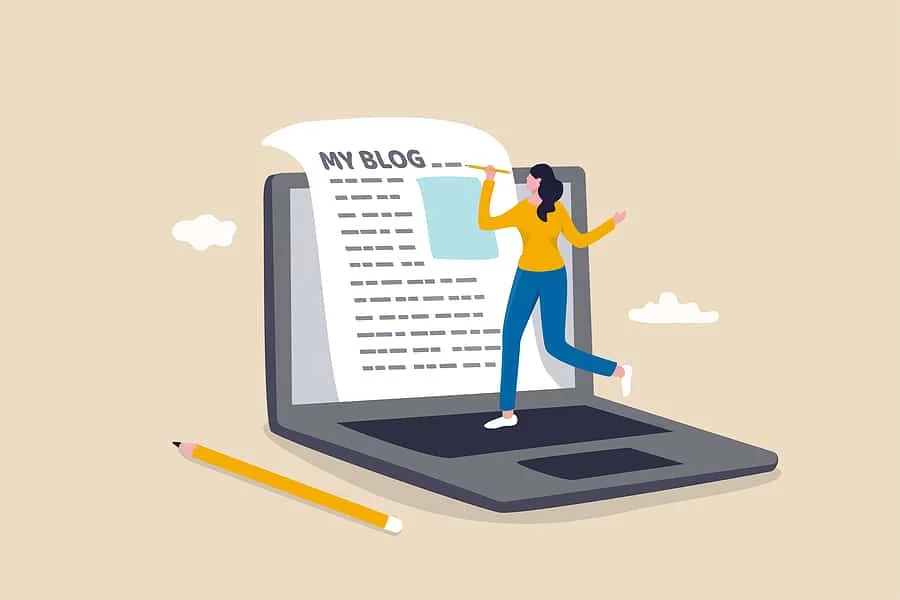Common blogging mistakes to avoid

Blogging has become one of the most effective ways to share knowledge, build a personal brand, and even generate income online. However, many aspiring bloggers stumble upon common pitfalls that prevent their blogs from reaching their full potential. Whether you’re just starting out or looking to improve an existing blog, understanding and avoiding these mistakes can save you time, effort, and frustration.
1. Neglecting a Clear Purpose

One of the biggest mistakes bloggers make is not defining a clear purpose for their blog. Are you blogging to educate, entertain, inspire, or promote a product or service? Without a clear goal, your content can seem scattered and inconsistent. Readers are drawn to blogs that provide value and have a clear focus. Take time to define your target audience and the purpose of your blog before you publish your first post.
2. Inconsistent Posting Schedule
Consistency is key to growing a loyal audience. Many bloggers start with enthusiasm but post irregularly, which can confuse or frustrate readers. A blog that goes silent for weeks or months loses credibility and traffic. Create a realistic posting schedule—whether it’s once a week, biweekly, or monthly—and stick to it. Planning content in advance through an editorial calendar can help maintain consistency without feeling overwhelming.
3. Ignoring SEO Basics
Search engine optimization (SEO) is crucial for driving organic traffic to your blog. Yet, many bloggers overlook SEO, focusing solely on writing without considering how their content will be discovered online. Simple mistakes like neglecting keyword research, skipping meta descriptions, or ignoring internal linking can drastically reduce your blog’s visibility. Learning basic SEO principles and applying them to every post will improve your chances of ranking higher on search engines.
4. Writing for Yourself Instead of the Audience

Another common mistake is writing solely based on what the blogger wants to say rather than what the audience needs. While it’s natural to enjoy sharing personal opinions or experiences, your content should ultimately address the interests, problems, or questions of your readers. Conduct audience research, read comments, and engage with your followers to understand the type of content they value most.
5. Poor Formatting and Readability
Even high-quality content can lose impact if it’s difficult to read. Long blocks of text, small fonts, lack of headings, or poor use of images can discourage readers from finishing a post. Use subheadings, bullet points, short paragraphs, and visuals to break up text and make your blog posts more engaging. Readability tools, such as Hemingway Editor or Grammarly, can help improve clarity and flow.
6. Overlooking the Power of Visuals
Visual content—images, infographics, charts, and videos—can significantly enhance your blog posts. Bloggers often underestimate the role visuals play in keeping readers engaged and helping them understand complex topics. Incorporate relevant visuals, optimize image sizes for faster loading, and ensure proper attribution if using images from other sources.
7. Neglecting Promotion
Writing a great blog post is only half the battle; promotion is equally important. Many bloggers make the mistake of expecting readers to find their content organically without any effort in marketing. Share your posts on social media, engage in online communities, collaborate with other bloggers, and consider email marketing to increase visibility. Remember, a post that isn’t promoted effectively may go unnoticed, no matter how valuable it is.
8. Failing to Engage with Readers

Blogging is not a one-way street. Ignoring reader comments, questions, or feedback can make your blog seem impersonal and detached. Engaging with readers builds community, encourages repeat visits, and enhances credibility. Respond promptly to comments, ask questions to spark discussion, and encourage social sharing.
9. Giving Up Too Soon
Many bloggers quit prematurely because they don’t see immediate results. Building a successful blog takes time, patience, and consistent effort. Expect gradual growth rather than instant fame or income. Avoid comparing yourself to highly established blogs; focus on continuous improvement and long-term goals.
Conclusion
Avoiding these common blogging mistakes can dramatically increase your chances of building a successful and sustainable blog. Focus on defining your purpose, understanding your audience, maintaining consistency, optimizing for search engines, and engaging with readers. Combine these strategies with high-quality content and effective promotion, and you’ll create a blog that attracts, informs, and inspires.
Blogging is a journey filled with learning opportunities. By recognizing and correcting these mistakes early, you’ll save yourself frustration and accelerate your growth as a blogger. Keep experimenting, learning, and refining your approach, and your blog can become a valuable resource that resonates with readers for years to come.
